What We’re Reading on The Public
In anticipation of the beginning of the 2022-2023 fellowship year on the theme of The Public, the Notre Dame Institute for Advanced Study (NDIAS) asked its incoming Fellows what they have been reading on the topic.
Here are ten thought-provoking books on Fellows’ reading lists that are sure to inspire conversation and help deepen our understanding of the theme.
For those who would like to stay updated on NDIAS The Public programming throughout the year, including visits by Pulitzer Prize-winning journalist and author Carlos Lozada, subscribe to the NDIAS mailing list.
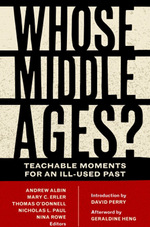
Whose Middle Ages?: Teachable Moments for an Ill-Used Past
Andrew Albin, Mary C. Erler, Thomas O’Donnell, Nicholas L. Paul, and Nina Rowe (eds.)
Fordham University Press, 2019
An interdisciplinary collection of short, accessible essays intended for the non-specialist reader. Each of twenty-two essays takes up an area where humans have dug for meaning into the medieval past and brought something distorted back into the present.
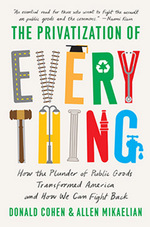
The Privatization of Everything: How the Plunder of Public Goods Transformed America and How We Can Fight Back
Donald Cohen and Allen Mikaelian
The New Press, 2021
A sweeping exposé of the ways in which private interests strip public goods of their power and diminish democracy, covering the impact of privatization on every aspect of our lives: from water and trash collection to the justice system and the military.
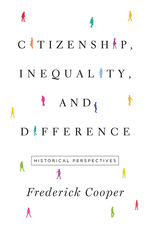
Citizenship, Inequality, and Difference: Historical Perspectives
Frederick Cooper
Princeton University Press, 2018
A succinct and comprehensive history of the development of citizenship from the Roman Empire to the present day.
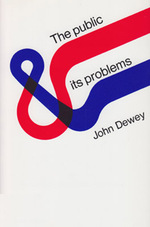
The Public and Its Problems
John Dewey
Swallow Press, 1954
A classic in social and political philosophy. In his characteristic and provocative dialectic style, John Dewey clarifies the meaning and implications of such concepts as “the public,” “the state,” “government,” and “political democracy”; distinguishes his a posteriori reasoning from a priori reasoning which, he argues, permeates less meaningful discussions of basic concepts; and repeatedly demonstrates the interrelationships between fact and theory.
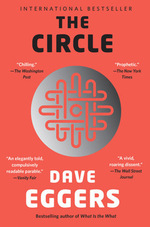
The Circle
Dave Eggers
Vintage, 2014
What begins as the captivating story of one woman’s ambition and idealism soon becomes a heart-racing novel of suspense, raising questions about memory, history, privacy, democracy, and the limits of human knowledge.
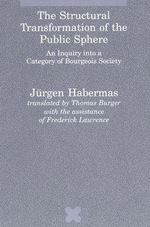
The Structural Transformation of the Public Sphere
Jürgen Habermas
MIT Press, 1991
This is Jürgen Habermas's most concrete historical-sociological book and one of the key contributions to political thought in the postwar period. It will be a revelation to those who have known Habermas only through his theoretical writing to find his later interests in problems of legitimation and communication foreshadowed in this lucid study of the origins, nature, and evolution of public opinion in democratic societies.
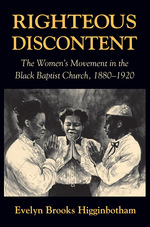
Righteous Discontent: The Women’s Movement in the Black Baptist Church, 1880-1920
Evelyn Higginbotham
Harvard University Press, 1994
Higginbotham gives us our first full account of the crucial role of black women in making the church a powerful institution for social and political change in the black community. Between 1880 and 1920, the black church served as the most effective vehicle by which men and women alike, pushed down by racism and poverty, regrouped and rallied against emotional and physical defeat.
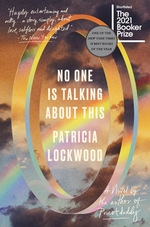
No One Is Talking About This
Patricia Lockwood
Riverhead Books, 2021
Fragmentary and omniscient, incisive and sincere, No One Is Talking About This is at once a love letter to the endless scroll and a profound, modern meditation on love, language, and human connection from a singular voice in American literature.
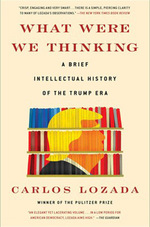
What Were We Thinking: A Brief Intellectual History of the Trump Era
Carlos Lozada (2022-2023 Practitioner in Residence)
Simon & Schuster, 2020
Lozada digs into books of the Trump era and finds that our response to this presidency often reflects the same polarization, contradictions, and resentments that made it possible.
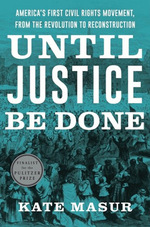
Until Justice Be Done: America's First Civil Rights Movement, from the Revolution to Reconstruction
Kate Masur
W.W. Norton & Company, 2022
A groundbreaking history of the movement for equal rights that courageously battled racist laws and institutions, Northern and Southern, in the decades before the Civil War.
All book descriptions adapted from publisher websites.
The NDIAS convenes an interdisciplinary group of faculty fellows, top doctoral candidates, and undergraduate scholars to study questions that require a joint focus, benefit from sustained research and discussion, and advance our understanding on core issues that affect our ability to lead valuable, meaningful lives. To learn more about the fellowship program and the Institute, please visit ndias.nd.edu/fellowships.
Contact:
Kristian Olsen / Fellowships, Outreach, and Operations Program Manager
Notre Dame Institute for Advanced Study / University of Notre Dame
kolsen1@nd.edu / 574.631.2830
ndias.nd.edu / @NotreDameIAS
About Notre Dame Research:
The University of Notre Dame is a private research and teaching university inspired by its Catholic mission. Located in South Bend, Indiana, its researchers are advancing human understanding through research, scholarship, education, and creative endeavor in order to be a repository for knowledge and a powerful means for doing good in the world. For more information, please see research.nd.edu or @UNDResearch.